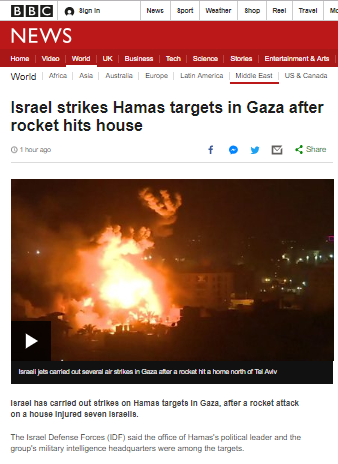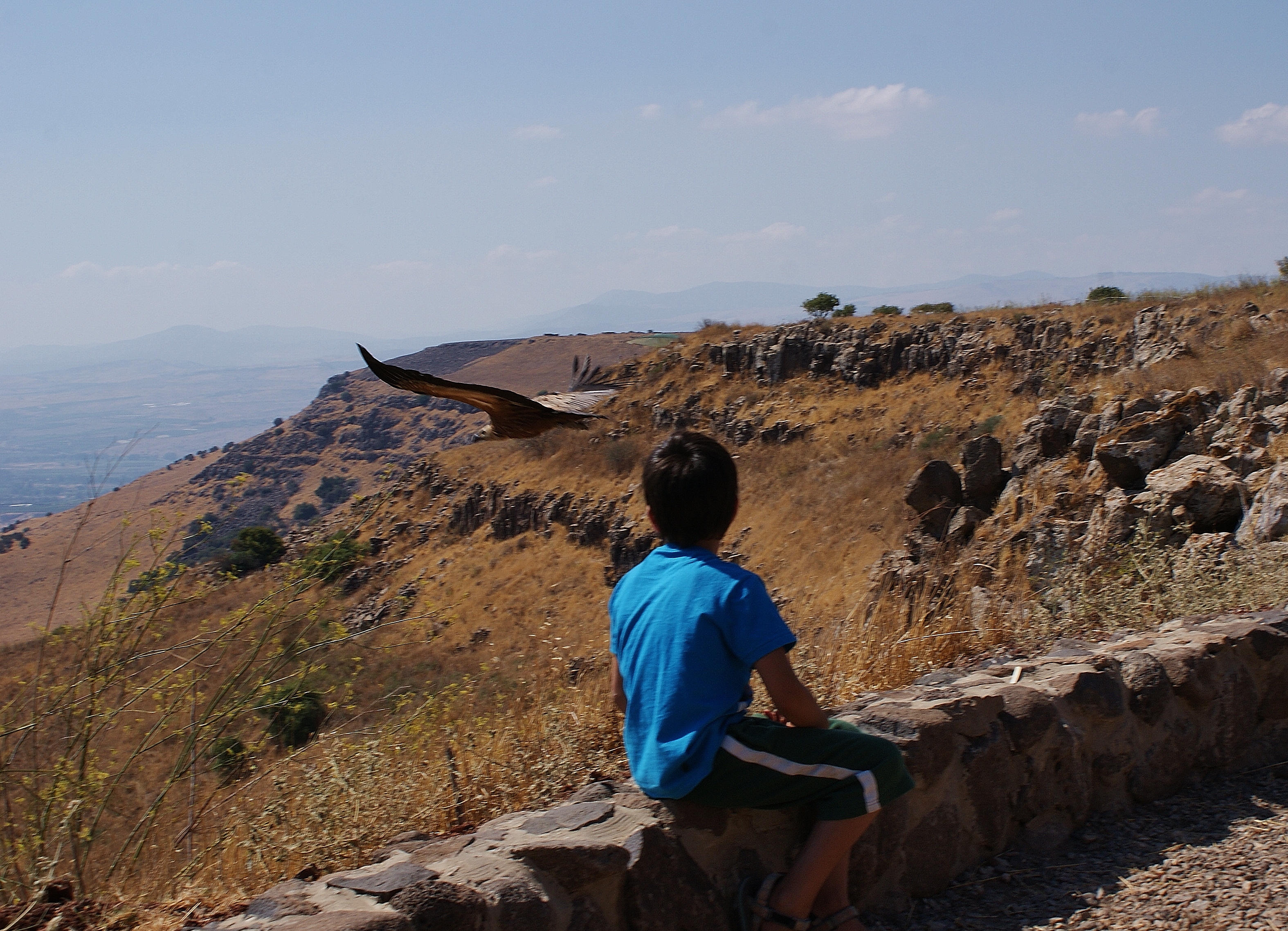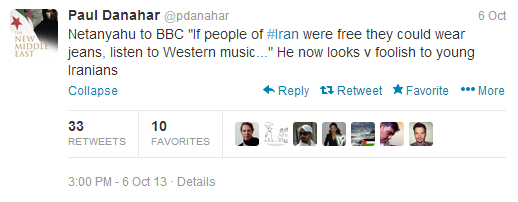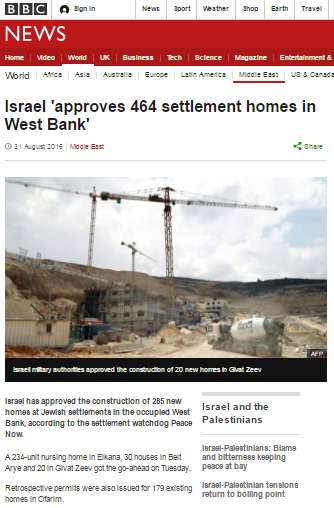Early on the evening of March 25th the BBC News website published a report headlined “Israel strikes Hamas targets in Gaza after rocket hits house”. Since its initial appearance the article has undergone amendment twelve times. The latest version (at the time of writing) gives readers mostly reasonable portrayal of events but a few points are nevertheless noteworthy.
On two occasions the report refers to “Gaza’s health ministry”.
“Gaza’s health ministry said seven Palestinians were injured.”
“The IDF said, in response to the rocket fire, fighter jets and helicopters struck 15 targets in Gaza, including a Hamas military compound in the central town of Deir al-Balah. Gaza’s health ministry did not report any casualties as a result of those strikes.”
Interestingly, several previous versions of the report had accurately referred to “the Hamas-run Gaza health ministry” but the obviously relevant fact that the body reporting injuries and casualties is the same body firing the rockets and mortars was curiously erased from the final version of the article set to remain online.
While people who deliberately attack civilian targets are clearly terrorists, the BBC – as usual – could not bring itself to use that term in this report. [emphasis added]
“Militants later launched a barrage of rockets towards southern Israeli towns despite reports of a ceasefire, triggering further Israeli strikes.”
“So far no Palestinian militant group has said it fired the long-range rocket that hit the house in Mishmeret, north of Tel Aviv, on Monday morning.”
“Overnight, Palestinian militants in Gaza fired more than 60 rockets and mortars towards Israel, according to the IDF.”
And so, as ever, we see the BBC using the euphemism ‘militants’ because it considers it more important to avoid making “value judgements” about terrorists who target sleeping Israeli civilians with military grade mortars and rockets than to inform its audiences by means of precise and appropriate language.
Right at the end of the final version of this report, readers find a section sub-headed “What did Israel strike in response?”.
“The targets included the office of Hamas political leader Ismail Haniya in Gaza City’s Rimal district. There was no indication that Mr Haniya was inside at the time.
The IDF also said it had bombed a five-storey building in Gaza City housing the offices of Hamas’ Internal Security Service, and a three-storey building in the eastern Sabra district that was the “secret headquarters” of Hamas’s General Security Forces, as well as its General Intelligence and Military Intelligence agencies.”
Finally, readers were told that:
“A Hamas website, The Palestinian Information Center, said blocks of flats, civilian facilities, agricultural land and “resistance sites” had been targeted.”
In other words, the BBC chose to close this report with unquestioning amplification of unsubstantiated claims of Israeli attacks on non-military targets sourced from a website run by a terrorist organisation.
Quite how that meets the BBC’s obligation to provide “accurate and impartial news…of the highest editorial standards” is of course a mystery.
Related Articles:
Improved BBC News website reporting on Sharon rocket attack




